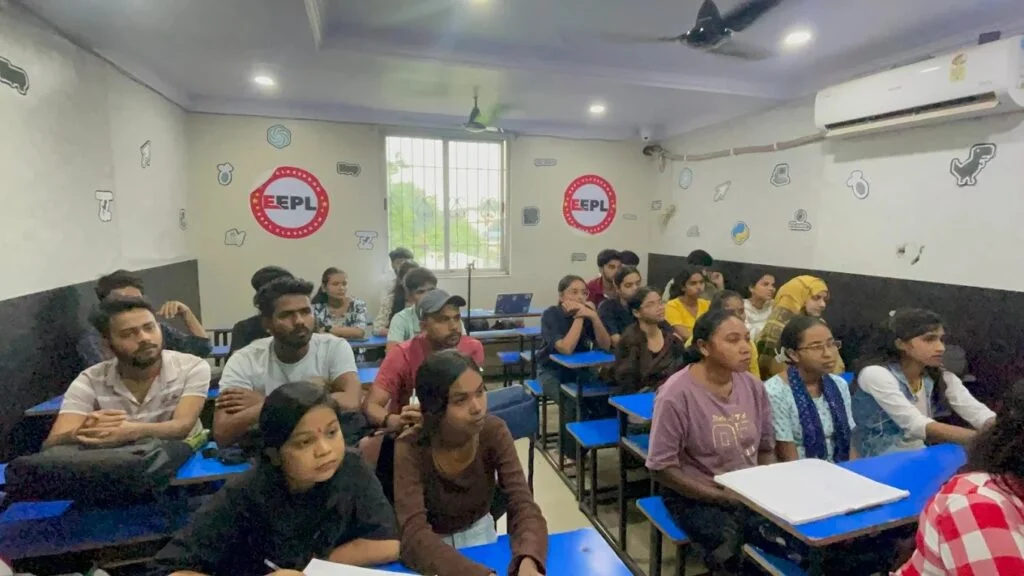Introduction to EEPL Classroom
EEPL Classroom is an innovative educational platform dedicated to providing a robust foundation in programming for beginners. The mission of EEPL Classroom is to demystify complex programming concepts and make them accessible to learners of all ages. Through its well-structured curriculum, learners are guided to develop critical thinking skills and practical knowledge applicable in various programming contexts.
The approach adopted by EEPL Classroom stands out in the landscape of online education. Unlike many conventional learning platforms that often rely on passive video lectures, EEPL Classroom emphasizes active participation. The platform integrates interactive coding exercises, real-time feedback, and hands-on projects that create an immersive learning experience. This model not only fosters engagement but also facilitates a deeper understanding of programming fundamentals. As learners navigate through exercises, they can immediately apply theory to practice, reinforcing their knowledge effectively.
One of the distinguishing features of EEPL Classroom is its supportive community. Learners are encouraged to collaborate and engage with peers and instructors through discussion forums, group projects, and peer reviews. This sense of community is invaluable, as it allows beginners to seek assistance, share insights, and build relationships, making the learning process less isolating. Moreover, the platform offers resources such as tutorials, coding challenges, and mentorship programs that are instrumental in guiding beginners through their learning journeys.
In conclusion, EEPL Classroom serves as a comprehensive platform that not only teaches programming but also instills confidence in learners. By fostering interactivity and building a collaborative environment, it successfully prepares individuals to grasp essential programming concepts, laying a strong foundation for future growth in their programming endeavors.
Curriculum and Learning Pathways
The EEPL Classroom offers a comprehensive curriculum tailored to provide students with a robust foundation in programming. The curriculum is thoughtfully designed to cater to various skill levels, enabling learners to embark on their coding journey whether they are complete beginners or individuals seeking to advance their existing skills. At the core of the curriculum are fundamental programming languages like Python and JavaScript, which serve as essential building blocks for understanding programming concepts and methodologies.
Python, renowned for its readability and versatility, becomes an ideal starting point for newcomers. The curriculum emphasizes practical applications, allowing students to engage in hands-on projects that reinforce theoretical knowledge while also cultivating problem-solving abilities. JavaScript, another core component, introduces learners to the world of web development, equipping them with the skills necessary to create interactive web applications. Students progress from learning basic syntax to diving into more complex frameworks, enhancing their capacity to build engaging websites.
As learners advance, the curriculum expands to cover advanced topics such as data science and web development frameworks like React and Node.js. This progression ensures that students not only grasp foundational skills but also acquire the advanced capabilities needed to thrive in today’s technology-driven environment. Alongside these technical skills, EEPL Classroom emphasizes the importance of best practices in software development, including debugging and version control.
To accommodate different learning styles and paces, EEPL Classroom introduces multiple learning pathways. This flexibility allows students to choose a route that aligns with their personal and professional goals, ensuring that they build a strong programming foundation at their own speed. The combination of a structured curriculum and flexible learning pathways positions EEPL Classroom as an effective platform for anyone looking to flourish in the field of programming.
Hands-On Projects and Practical Applications
In the modern landscape of programming education, the integration of hands-on projects within the EEPL Classroom curriculum is paramount. These practical applications create opportunities for students to engage with programming concepts in tangible ways, reinforcing theoretical knowledge through actionable learning experiences. By participating in real-world projects, learners can bridge the gap between abstract theories and their practical implementations.
Project-based learning fosters a dynamic educational environment where students are encouraged to tackle challenges similar to those they may encounter in professional settings. This method not only aids in understanding but also cultivates essential skills such as collaboration, time management, and critical thinking. As students work on diverse projects—ranging from developing applications to addressing specific programming problems—they actively apply their coding skills, thus solidifying their knowledge base and enhancing their technical abilities.
The importance of these hands-on projects extends beyond mere application. They serve as a powerful motivator, igniting students’ passion for programming and instilling a sense of ownership over their learning journey. Engaging in projects that simulate real-world scenarios creates a context in which concepts are more meaningful. Students learn to contextualize their knowledge, adapting their skill set to meet real demands, which is a crucial component in the build-up of competent programmers.
Moreover, hands-on projects are effective in promoting problem-solving skills. As students encounter the complexities and challenges inherent in their projects, they learn to break down problems into manageable parts and explore innovative solutions. By iterating on their designs, testing various approaches, and analyzing outcomes, students gain valuable insights into the problem-solving process that traditional learning environments may lack.
Incorporating hands-on projects into the EEPL Classroom curriculum not only elevates student engagement but also enhances the overall learning experience, making programming not just a subject, but a field of discovery and creativity.
Support and Community Engagement
In the EEPL Classroom, support and community engagement serve as fundamental components that significantly enhance the learning experience for students. Recognizing that programming can present various challenges, the EEPL Classroom provides an array of resources designed to facilitate student success. Among these resources, mentorship stands out as a vital element. Experienced instructors are readily available to guide students, offering personalized assistance and insights that are crucial for overcoming obstacles encountered during learning.
Furthermore, the establishment of forums within the EEPL Classroom encourages active communication among students. These online platforms allow learners to post questions, share valuable knowledge, and collaborate on coding projects. Engagement in forums not only helps clarify complex topics but also fosters a sense of community, where students can connect with their peers. Through these interactions, learners can obtain diverse perspectives and solutions to programming challenges, thereby enriching their educational experience.
Collaborative projects further extend this spirit of community throughout the EEPL Classroom. By working together on coding assignments or software development initiatives, students not only apply their skills but also form relationships with others who share similar interests. These collaborations are instrumental in developing teamwork skills, which are essential in the programming industry. Additionally, the social connections established in the classroom can lead to networking opportunities that benefit students in their future career endeavors.
Overall, the emphasis on support and community engagement within the EEPL Classroom is paramount to nurturing a conducive learning environment. By offering mentorship, maintaining active forums, and encouraging collaborative work, the EEPL Classroom motivates students to persist in their programming journey while building meaningful connections with like-minded individuals.










